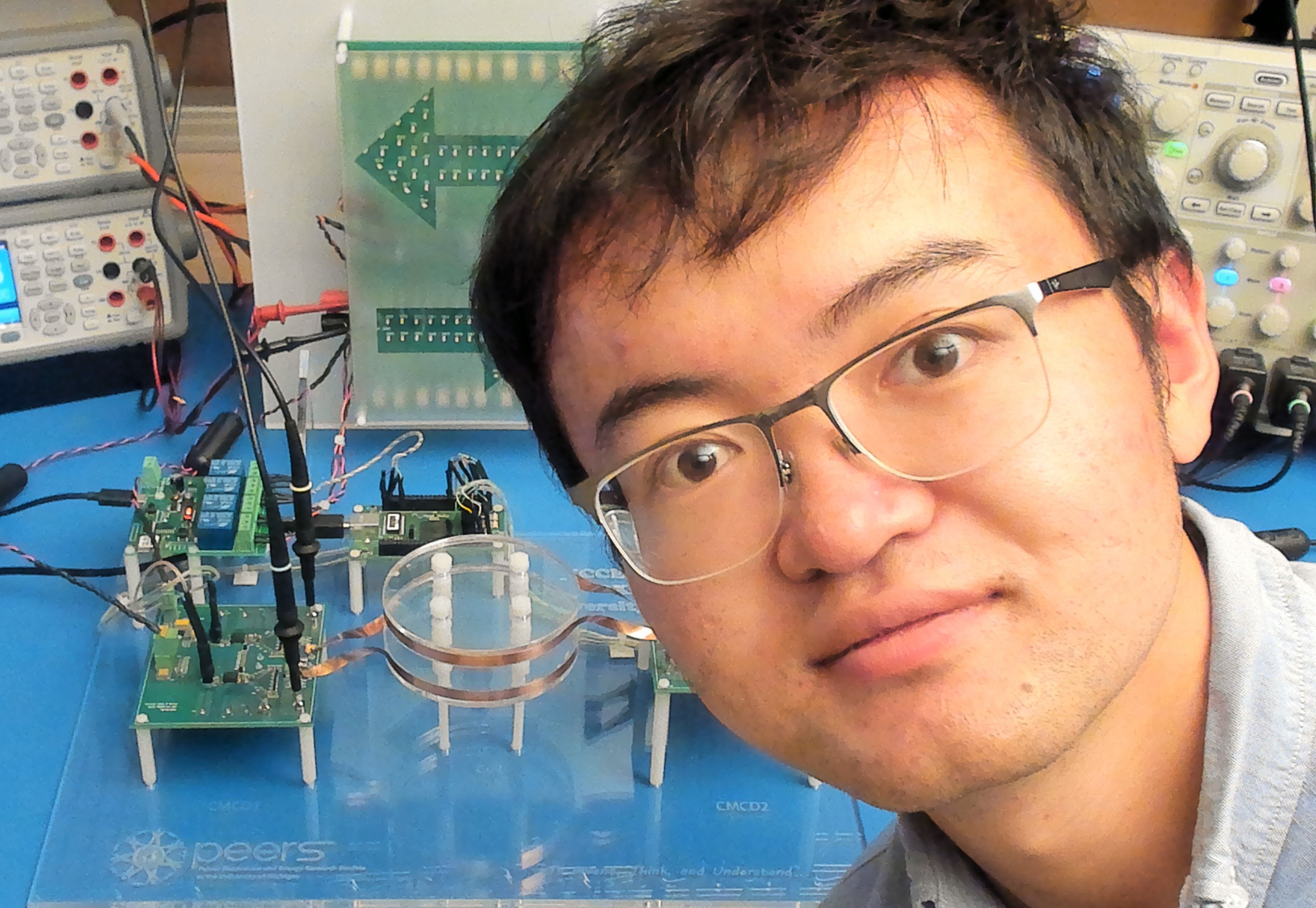Xin Zan wins the Towner Prize for his work advancing wireless power transfer
PhD student Xin Zan is helping to free the world from cords, which could advance implantable medical devices, autonomous electric vehicles, and consumer electronics.

 Enlarge
Enlarge
Imagine charging your cell phone simply by setting it on a table. Imagine protective casings with zero openings, so when you drop your phone in the bathtub, you won’t be concerned that you just destroyed it. Imagine a world without cords entirely, where we can easily share and store energy.
This is a world of wireless power transfer (WPT), and PhD student Xin Zan hopes to make it a reality.
Zan, who works with Prof. Al-Thaddeus Avestruz in the Michigan Power and Energy Laboratory, has received the Richard F. and Eleanor A. Towner Prize for Distinguished Academic Achievement. The award recognizes one graduate student in each degree program in the College of Engineering who is strong in research, leadership, and academic performance.
Zan’s research is focused on high-frequency (3-30 MHz) and very-high-frequency (30-300 MHz) WPT in the field of power electronics. Starting from 6.78 MHz, he spent a year increasing the operational frequency by a factor of four to 27.12 MHz. Now, he is working on 100 MHz inductive wireless power transfer.
“Not many people in my society work on this frequency range. It’s quite new and quite challenging,” Zan says.
Most WPT is focused on lower operational frequency, however, with higher frequency, the systems can achieve a high power density. It is a challenging task, and proper devices, circuits, control methods, and architectures are needed to maintain both high efficiency and high power during such high frequency power conversion.
While Zan’s work targets consumer electronics, the principles and ideas of his research could be extended to many different applications. Electric vehicles – both autonomous and non-autonomous – could simply park in a place to get recharged, without having to be plugged in. Implantable medical devices running off battery could have longer lifespans inside the human body, for they could easily be recharged without surgery or other invasive procedures.
“The research is challenging, but I enjoy solving hard problems,” Zan says.
The research is challenging, but I enjoy solving hard problems.
Xin Zan, PhD student
Zan grew up in Qinghai – Tibet Plateau, the Third Pole of the world, and he earned his bachelor’s degree in Electrical Engineering and Automation from Tsinghua University, China. He was attracted to U-M because he was interested in the work Prof. Avestruz was doing in the field of power electronics, and he also believed U-M was a good place to make his mark.
“Here I can start the original research topics as a main contributor,” Zan says. “I have more opportunities to interact with professors and cooperate with others.”
His passion for his undergrad and U-M has earned him the role of Student President for the Association of Tsinghua University Alumni in Michigan. In this role, he helps organize events to connect Tsinghua students who are new to U-M. His leadership role for the association as well as his lab group helped earn him the Towner Prize.
In addition to his research, Zan is an accomplished Graduate Student Instructor and graduate student advisor.
“I enjoy sharing knowledge,” Zan says. “I like helping others, and communicating with people inspires good ideas for my own research. So it’s good for me and for them.”
When he’s not in the lab or assisting students, Zan enjoys seeing performances from the University Musical Society, playing sports, and travelling with friends.
 MENU
MENU 
